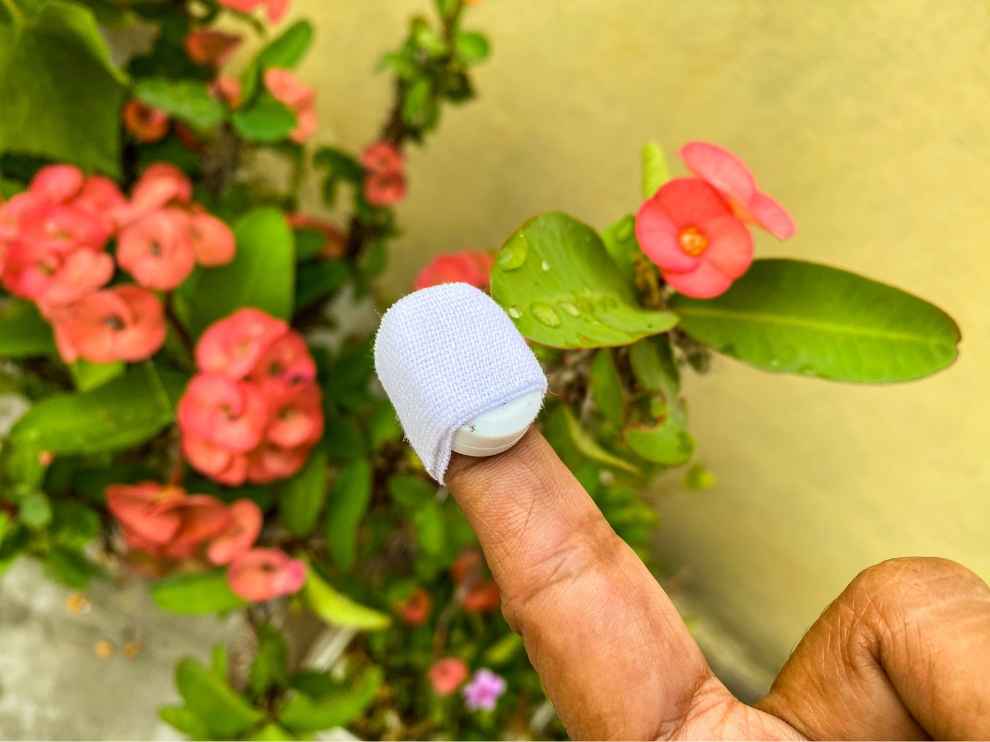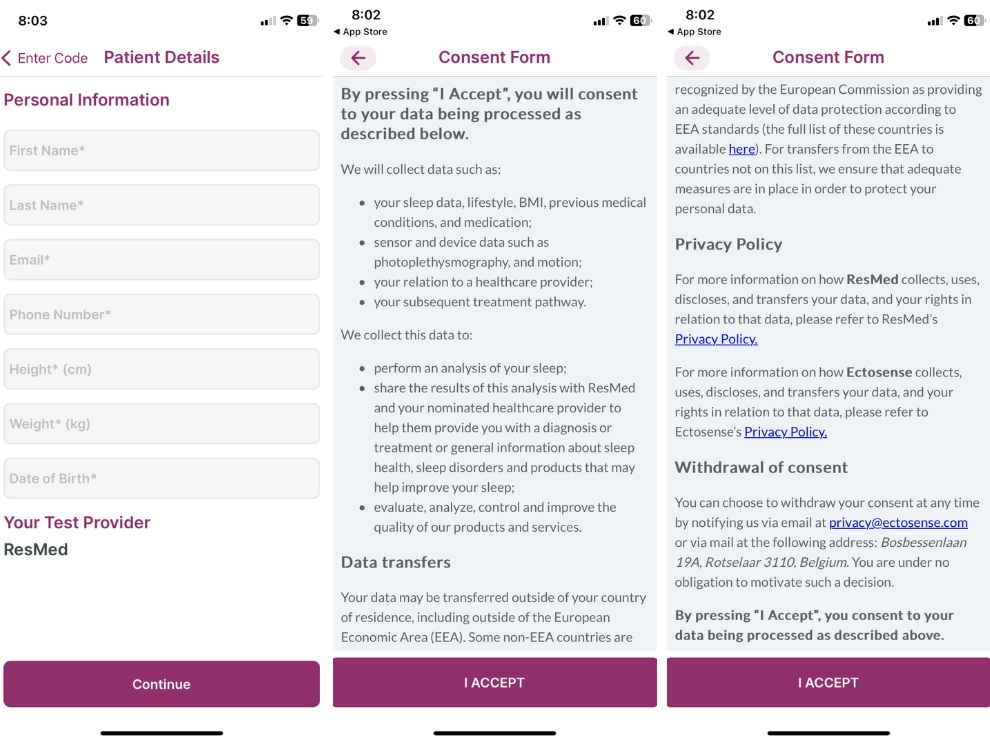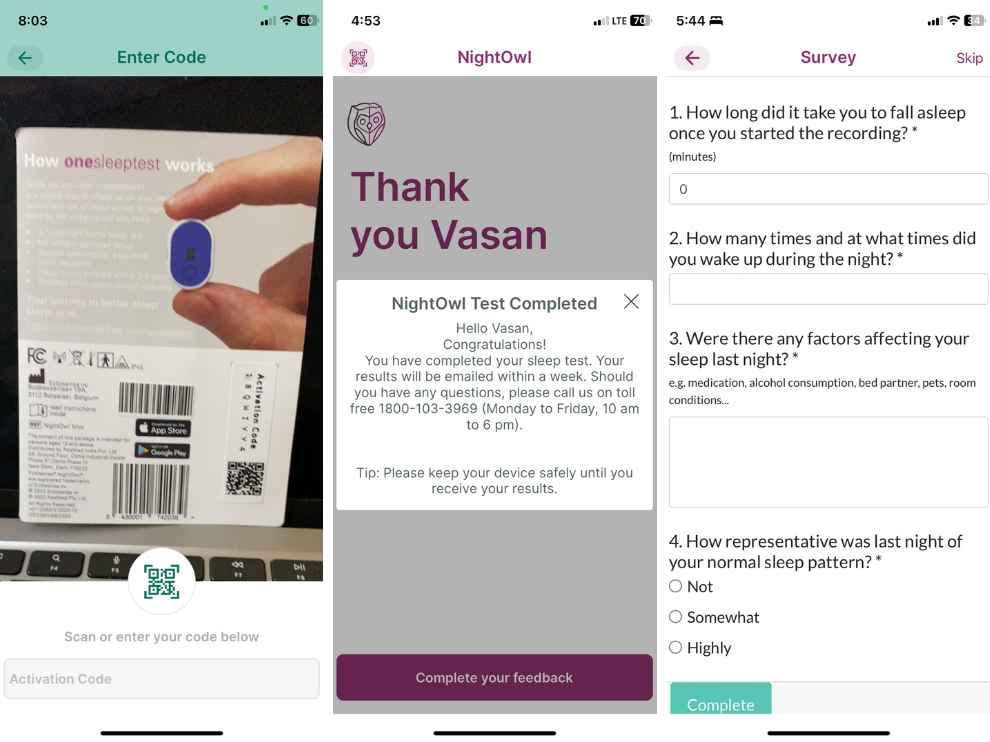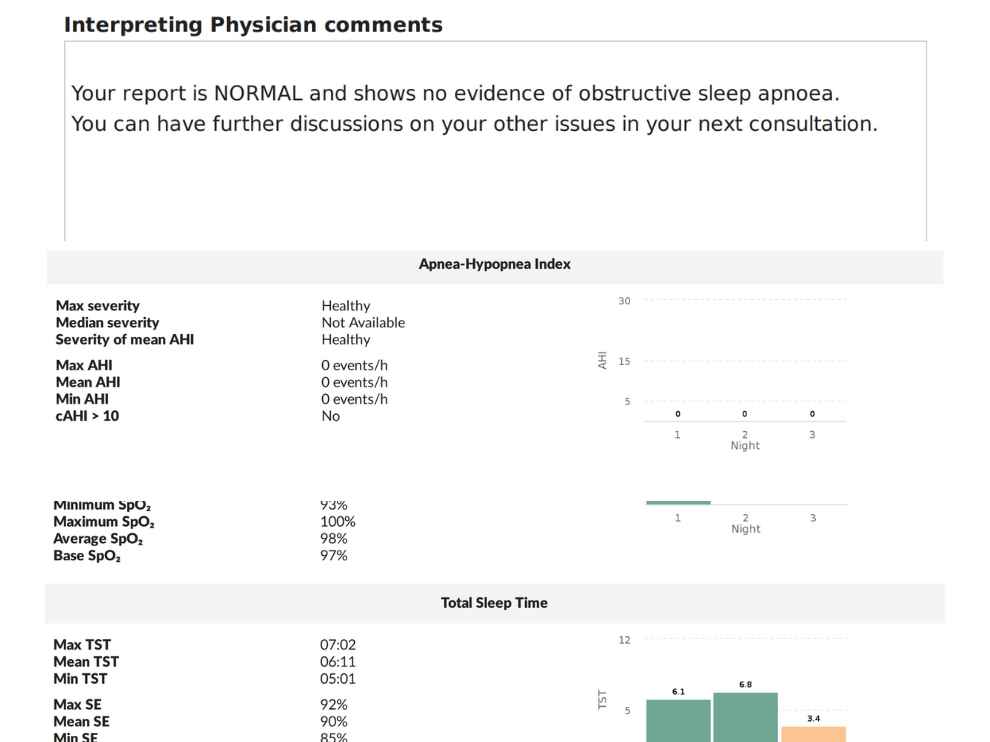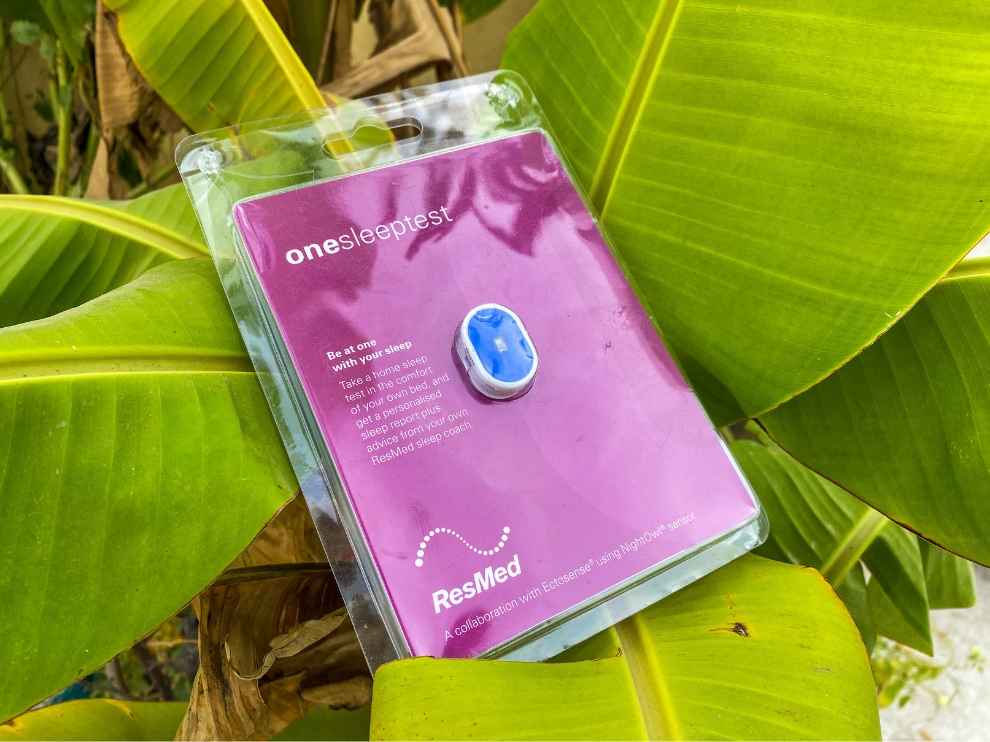I wore the ResMed OneSleepTest for 3 nights and here is my experience
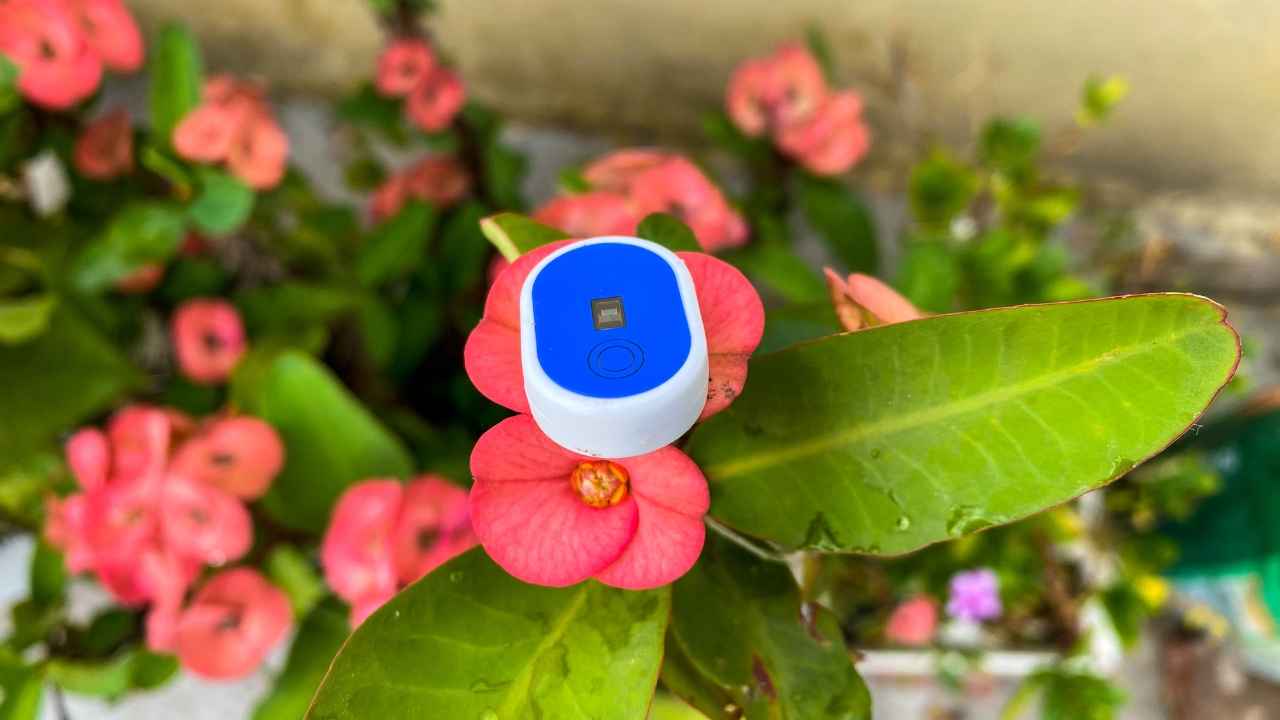
We will learn how the ResMed OneSleepTest works.
In the course of this read, we will also discern the differences between OneSleepTest and in-lab polysomnography.
You will also see what to expect while using OneSleepTest to check your sleep health.
Although I have been gifted with sound sleep all my life, there are people in my family and friends who have poor sleep and who suffer from associated health effects like tiredness, stress, drowsiness, impaired memory, etc. So, when I came across the ResMed OneSleepTest, I was curious enough to test it out. I wanted to see how helpful these sleep health analyzers are to monitor one’s sleep health and possibly meet sleep goals. As a wearable tester, I often wear smartwatches during the night to track my sleep, but this is a specialized device, and unlike anything I have used before. So, let’s see how my experience was wearing it for 3 nights. To broaden the scope of my test, I also had my mom wear it for 3 consecutive nights.
Once my testing was done and I received the analysis from Resmed, I also contacted sleep specialists at the company with some queries and I have included those in this piece.
Let’s begin with the test first.
How I used ResMed OneSleepTest to track my sleep health?
The ResMed OneSleepTest kit comes in a small package as the wearable itself is tiny and its application is also rather easy to use. The actual device is white-coloured and pill-shaped. There is a red LED indicator on one side. You have to strap it to your index finger using the bundled adhesive strips. Ensure the LED side faces your finger while you fasten it.
You get how to do this with proper visual illustration in the ResMed NightOwl app. You can download the app from Google Play (on Android) and App Store (on iOS). The app is fairly simple to use but needs registration with your email ID and some basic details.
You will have to accept the privacy policy to use the device.
Further, you just have to connect the device to the app, activate it using the button on it, and wear it while you sleep. There will be a timer in the app that you have to turn off when you wake up the following morning. You will have to fill out a survey on the app and only then your one night’s test is considered complete. Also, you can unfasten and remove the device at this point. The strip can be disposed of and don’t worry, there are plenty of spare strips to do the 3-night OST test.
If you perform all these steps properly, after 3 nights, a ResMed sleep specialist assigned to you will analyze your sleep health data and send you a report over email.
The sleep specialist who was assigned to me was quite amiable and responsive. They will help you understand your sleep results and the OST report.
The report tells you your sleep health stats like pulse rates, apnea-hypopnea index, blood oxygen count, total sleep time, and physician's comments
I didn’t have any sleep problems and the report reflected the same. However, my mom who occasionally has poor sleep took this test and her report also came rather fine. So, I am happy that both of us don’t have sleep apnea or any other problems.
Still, since the tests, I had more questions than before. I sent a question sheet to ResMed and I got the following responses from Dr Sibasish Dey, Head, of Medical Affairs, South Asia, ResMed.
Responses for Digit Magazine queries on OST
These responses are un-edited and came straight from the brand:
May I know the cost of the test? I understand the OneSleepTest is priced ₹2099 on your website. Is there any other cost a regular user should know about? Do the costs associated with this test come under insurance coverage?
The OneSleepTest is well priced at ₹4,000 (MRP) in comparison to overnight hospital and sleep lab tests. One can buy the test across various marketplaces and websites including ResMed’s website, where we currently have an offer with the price being ₹2,099. Currently, the OST is not covered under insurance.
The OneSleepTest claims to diagnose sleep quality. Can you throw light on the studies and tests backing the claim? Also, could you please explain how the tech works?
The OneSleepTest is one of the first steps for anyone with sleep disturbances to check whether they suffer from sleep apnea. It measures your heart rate, oxygen levels, and movement to provide a detailed and accurate picture of how you sleep.
Given that the product is USA FDA approved, we have conducted several clinical trials which resulted in being able to diagnose sleep apnea. In fact, the study An Evaluation of the NightOwl Home Sleep Apnea Testing System highlights the efficacy of OneSleepTest.
OST is a test based on peripheral arterial tonometry technology to detect important parameters including heart rate, oxygen desaturation, and body movements to assess REM cycle and sleep apnea and as mentioned, it is a medical-grade device and not similar to the app used to track sleep.
Is the at-home sleep test as good as if not better than the in-lab test?
The importance of sleep and how poor sleep can be an underlying cause of numerous health conditions are greatly underappreciated by individuals across the globe. Additionally, human beings are inclined to postpone visiting a physician out of fear of being diagnosed with a disease, although they may experience certain symptoms. Lastly and most importantly, many individuals are apprehensive about visiting hospitals, spending the night there, or even going into labs, which are a requirement for sleep tests.
Therefore, keeping all these considerations in mind, we developed the at-home sleep test so that patients could assess, from the comfort of their homes, whether they have any sleep disturbances or are suffering from sleep apnea, one of the most widespread sleep-breathing disorders.
In terms of a home sleep test (HST) versus polysomnography (PSG), the latter offers a comprehensive view of all sleep disorders, while the former helps diagnose sleep apnea. More importantly, the cost of a PSG is expensive and can vary anywhere from INR 10,000 – INR 30,000, in comparison to the HST, is affordable, with the cost ranging between INR 2,500 – 4,000. Moreover, and most importantly, PSG requires the patient to sleep in the sleep laboratory or at a hospital, which is an unfamiliar environment, this could be uncomfortable for the individual, while with HST, the patient benefits from being able to complete the home sleep test in the convenience of their own home and bed.
Besides diagnosis, what other roles does a sleep specialist play?
A sleep specialist is a doctor with a fellowship or certification in sleep medicine who specializes in treating sleep disorders such as insomnia, sleep apnea, and disorders of the sleep movements like sleepwalking. A sleep specialist will also have expertise in the field of pulmonology, psychiatry, ENT, or neurology.
At ResMed, OneSleepTest data is analyzed by a sleep physician, who then presents the validated results with a thorough summary and treatment recommendations for the patient in accordance with the diagnosis.
Are there any potential side effects or risks associated with sleep tests?
OneSleepTest is a simple, accurate and safe way to perform sleep apnea diagnosis in the comfort of your home and there are no risks or side effects associated with the device.
If somebody’s diagnosed with sleep apnea or any other disorder, what’s the further course of action? Do you offer treatments (in-lab polysomnography) or recommend places to get treatment?
A sleep specialist shares the diagnosis in the OneSleepTest sleep report along with suggestions for the next steps. When an individual takes the OneSleepTest and is diagnosed with sleep apnea, it is advisable that the individual consult a sleep specialist to decide the best course of action for optimal healthcare.
ResMed does not, however, provide polysomnography or suggest any specific locations or healthcare providers for treatment.
If somebody’s taking sleep medications, should they stop taking them during the sleep test?
One should not take any medications while undergoing a sleep test. It is important to discuss any medications you are currently taking with the healthcare provider who ordered the sleep study. The doctor can advise whether medication should be continued as usual and discuss how specific medications may affect test results. Do not make any changes to your medication use prior to speaking with a doctor.
I should say Mr Dey’s responses were helpful for me to understand how the OST works and its benefits.
And that brings us to the conclusion.
ResMed OneSleepTest: What do I think of it?
As I have already mentioned, OneSleepTest is a simple and comfortable device to wear. It is very easy to use and offers an easy-to-understand analysis. But, it's hard to say how accurate some of those results are. I lack the proper mechanism or apparatus to benchmark it. All I have is some readings (like SpO2, sleep time, and heart rate) from my Apple Watch Series 8 that I wore during the test and the results were pleasantly comparable. Also, since I am no medical expert, I had no option other than take their word for it. Was it helpful? Yes, indeed!
The thing is you have to be okay paying ₹2099 (mind you, that’s with an offer) for this test and analysis (product and service). That could be a bit much for some, but again you have the benefits of an in-home test here. So, in a way, you are paying the price for convenience too. And if you can sleep over that, you can track your sleep with this.
G. S. Vasan
Vasan is a word weaver and tech junkie who is currently geeking out as a news writer at Digit. View Full Profile

